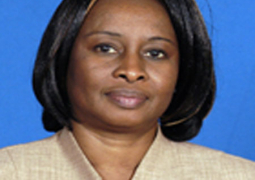Despite witnessing exceptional growth in development finance in recent years, Africa is still faced with the arduous task of mobilizing adequate resources to fund its growth and future transformation agenda.
Given the paucity of external development assistance, and low commodity prices for its goods and services, Africa has awakened to the fact that it must rely on its own financial resources for sustainable development.
One of the leading pan-African bodies, the United Nations Economic Commission for Africa (ECA), says infrastructure development in Africa has the potential to raise gross domestic product (GDP) by 2% and develop the backbone for rapid industrialization, which in turn could boost the capacity of the continent to generate more domestic resources.
In its Innovative Financing for the Economic Transformation of Africa report, published in March 2015, ECA reckons that Africa’s current infrastructure needs stand at a whopping $93 billion annually, out of which $45 billion is mobilised, leaving an annual deficit of almost $50 billion.
Thus, as Côte d’Ivoire’s President Alassane Ouattara aptly put it, Africa’s greatest challenge is ensuring that its transformation is bolstered by sufficient and innovative sources of funding.
“One solution would be to speed up the development of our financial markets with a view to sparking the transformation of African economies,” President Ouattara told the Ninth African Development Forum in Morocco last year. “To do so, we must come up with innovative financial products and set up effective national and regional financial institutions and services.”
While Africa is fully cognisant of the significant strides it has made since the Monterrey Consensus in March 2002 in mobilizing financial and technical resources for development, it contends that there is a huge gap.
“Current policy, financing and investment patterns are not delivering the future we want. There are enormous unmet financing needs for sustainable development. Estimates vary due to the complexities of quantifying needs, but consistently point to a significant financing shortfall,” African heads of state and governments affirmed in a zero draft of the outcome document of the Third Financing for Development (FfD) Conference, being held in Addis Ababa, Ethiopia (July).
Development analysts say Africa has realized that traditional sources of development finance, such as official development assistance and foreign direct investment, which have buoyed the continent’s development efforts over the years, are not sustainable and cannot be relied upon as its main sources of funding, as was shown during the 2007–2008 global financial crisis.
“Growth is never by mere chance; it is the result of forces working together.”
James Cash Penney


